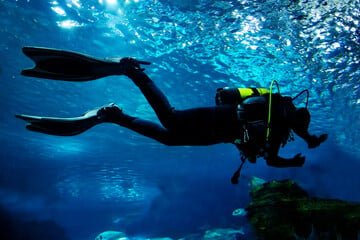Table of Contents
The two Danish backpackers experienced agonizing last hours before they were found dead.
Laos – After graduating from school, two teenagers from Denmark decided to backpack the world. But what started as a dream trip ended in a nightmare for the two friends.
Anne-Sofie Orkild Coyman (l., †20) and Freja Vennervald Sørensen (†21) were found lying unconscious on the bathroom floor. © Image montage: Screenshot/Facebook/Anne-Sofie Coyman, Screenshot/Instagram/rikkeven
How Daily Mail reports, Anne-Sofie Orkild Coyman (20) and Freja Vennervald Sørensen (21) had just completed their high school diploma when they started their exciting journey through the world.
After their first leg through Italy and Hungary in 2023, they began their grand tour of Southeast Asia in September.
They arrived in Laos earlier this month and checked into Nana Backpackers in Vang Vieng, a popular destination for travelers from around the world.

From all over the world miracle cures for fertility: How desperate women have their money taken out of their pockets
But their dream trip took a tragic turn when they consumed a cocktail that was suspected to be mixed with dangerous methanol.
The two young women who had started their journey with so much anticipation were later found lying unconscious on the bathroom floor.
Anne-Sofie and Freja were taken to the hospital, but it was already too late. Both were already in a coma and were declared dead a short time later.
Terrible last hours

The two women had consumed the same alcohol as several other travelers in their hostel who also became ill. (Symbolic image) © Patrick Pleul/dpa
The women had previously arranged to meet a Belgian man who started looking for them after 72 hours without any news.
He was particularly worried because the last message from the Danes was that they had been vomiting blood for 13 hours.
When he finally found out that Anne-Sofie and Freja had died, it was a great shock.

From all over the world Diving trip ends fatally for a tourist: teacher arrested
The two women had consumed the same alcohol as several other travelers in their hostel who also became ill.
Six dead holidaymakers in Laos: investigations underway

The Australian teenagers Holly Bowles (†19) and Bianca Jones (†19) died last week as a result of the supposedly poisoned cocktail. © Screenshot/TikTok/Hol1yb19
A total of six people died, including Australian teenagers Holly Bowles and Bianca Jones, 28-year-old Briton Simone White and 57-year-old American James Louis Hutson.
Eleven other foreign travelers remain in hospital in critical condition.
The owner of the backpacker hostel, Duong Duc Toan, was arrested by police.
The investigation into the incident continues.

How can media coverage of tragedies involving tourists balance the need to inform the public with the responsibility to avoid sensationalism and potentially harming the reputation of a country or region?
Here are some open-ended questions focused on the key topics of the article, designed to encourage discussion and diverse viewpoints, divided into thematic sections:
**I. The Tragedy Itself:**
* What ethical considerations arise when tourists are potentially exposed to dangerous substances in a foreign country? Who bears the responsibility for ensuring their safety?
* This article presents two separate incidents – how do these events highlight potential risks faced by travelers, particularly young travelers seeking adventure?
* What impact might these tragedies have on tourism to Laos and other Southeast Asian countries? How can destinations balance economic benefits from tourism with protecting visitor safety?
**II. Espionage and Blaming:**
* How does media coverage of incidents like these potentially influence public perception of a country or specific region?
* The article mentions a Belgian man searching for his friends. How do close relationships and personal connections impact our perception of such tragedies?
* The hostel owner’s arrest is mentioned in connection with the Laos incident. What are the potential challenges in seeking justice for tourists who fall victim to crimes or negligence in foreign countries?
**III. The Wider Context:**
* What role should travel advisories and safety information play in informing travelers about potential risks before they embark on their journeys?’
* How can travelers best protect themselves from potentially dangerous situations while traveling, and what ethical considerations are involved in doing so?
* This article focuses on individual cases. How do these tragedies connect to broader discussions about travel safety, international crime, and the responsibility of governments and businesses to protect tourists?
These questions aim to spark deeper reflection and conversation around the complex issues raised by the article. Remember, the goal is to encourage thoughtful discussion and explore multiple perspectives.
Let me know if you’d like me to elaborate on any specific question or suggest additional areas for discussion!
